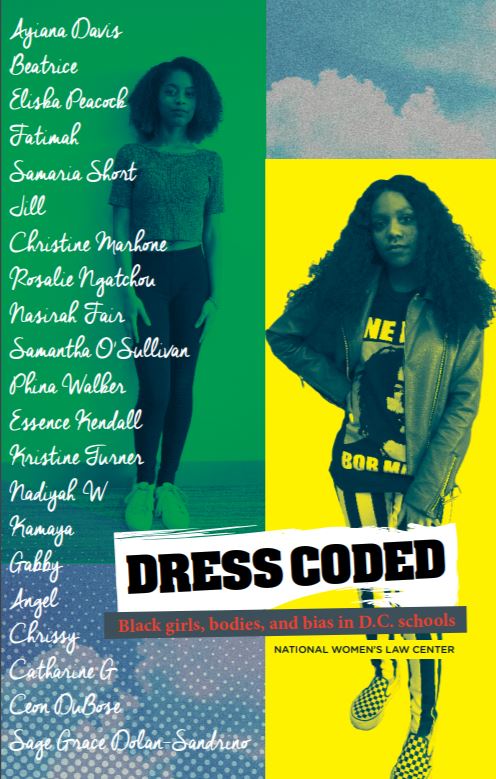
The implementation of dress codes within American public schools has been used to police young women’s bodies in order to maintain power over them, impacting their psychological well-being. Dress code policies within American public schooling system aims to specifically target Black women, assigning them the negative consequences of promiscuity and over-sexualization, leading to a disproportionate psychological impact. The upkeep of these regulatory dress codes furthers systemic white privilege within American public schools. Research conducted by the National Women’s Law Center shows that “among 29 D.C. schools, majority-Black high schools on average [have] more dress code restrictions than other high schools”. Additionally, “Black girls are much more likely than other girls to be cited for infractions such as dress code violations”. School dress codes typically enforce their ‘acceptable’ standards of dress from associations typically linked with the white middle class. This inherently promotes ideas linked with ‘whiteness’ and discourages ideas linked with ‘Blackness.’
Black women face double the judgement when met with these standards. Not only are their bodies deemed problematic simply because they are female, they are also deemed problematic for their Blackness. Black women have been assigned consequences through public schooling dress code policies which inherently and severely objectify and sexualize them: “Repeated exposure to sexual objectification experiences is linked to low self-esteem and high levels of anxiety, which affect women’s psychological well-being”. Black women are more prone to sexualization and objectification, as shown by the increased rate at which Black women in public schooling institutions receive dress code violations as well as by stereotypical media portrayals within popular culture. It is relatively easy to assume that Black women are then also more likely to experience the psychological downfalls associated with sexualization and objectification in response to these experiences.
Dress codes which discriminate heavily against Black individuals also prohibit the flourishing of self-esteem within Black females, as well as in Black youth in general. The enforcement of these dressing policies cast a shadow on the ability for the individuals to obtain a strong positive association between their race and their identity, effecting their psychological well-being and self-value. Rather than regulating female bodies, school environments should teach self-control. Rather than regulating Blackness, school environments should provide a safe place for cultural differences and promote inclusivity with faculty that is diverse and representative. In order to eliminate the incessant focus on controlling Black female bodies, the code which heavily regulates them needs to be removed. These dress code guidelines distract from the importance of intellectual growth and learning for Black youth within our public schooling systems. Clothing is not an indicator for success or failure. As long as dress code policies continue to exist, Black women will continually be targeted and placed at a disadvantage.
(Image credit: National Women’s Law Center)
By Molly Wilhelm
(Molly Wilhelm is a feminist and human rights activist based in Maryland.)